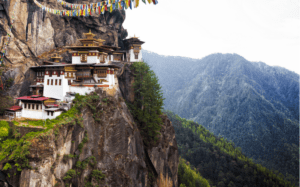 Ecotourism in Bhutan
Ecotourism in Bhutan
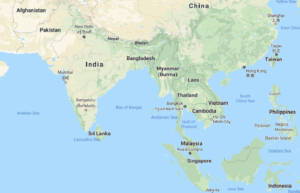
1. What is ecotourism, and how does it relate to Bhutan?
Traveling that emphasizes responsible and sustainable practices while exploring surroundings that are natural is known as ecotourism.
It highlights the need for maintaining ecosystems, biodiversity conservation, and local community welfare. Renowned for its dedication to cultural and environmental preservation, Bhutan closely resembles the ideas of ecotourism. Bhutan’s commitment to maintaining a high forest cover and protected areas showcases its dedication to environmental conservation.
In Bhutan, ecotourism is a complete strategy that includes sustainability in all facets of travel, not just seeing beautiful scenery. This strategy is reflected in the nation’s own Gross National Happiness (GNH), which places a strong emphasis on social well-being, cultural legacy, and environmental preservation.
Bhutan’s ecotourism projects are geared toward protecting the country’s immaculate surroundings, encouraging wildlife protection, and helping the local population.
It is recommended that visitors to Bhutan take part in eco-friendly activities when they are there, such as hiking on approved eco-trails, lodging in eco-friendly establishments, and taking part in community-based tourism in 2024.
Bhutan offers the ideal ecotourism seasons, spring (March–May) and fall (September–November), because of its dry, warm weather and breathtaking natural scenery. The great vistas of the Himalayas and clear, sunny days make these seasons perfect for learning about Bhutan’s ecosystem.
In general, Bhutan’s ecotourism philosophy goes beyond simple enjoyment of the natural world; it includes a strong regard for the environment, a dedication to sustainability, and a wish to improve the lives of local people as well as the environment.
2. What are the top ecotourism destinations in Bhutan?
2.1 Punakha Valley: A Naturalists’ Paradise
Situated at the intersection point of the Pho Chhu and Mo Chhu rivers, Punakha Valley boasts breathtaking natural splendor, including terraced fields, verdant forests, and ancient monasteries such as the Punakha Dzogong.
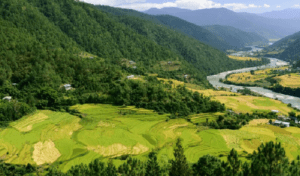
Discover Bhutanese customs with nature excursions, river rafting, and cultural tours. Eco-friendly lodging options and recycling initiatives facilitate sustainable tourist practices in the valley.
2.2 Phobjikha Valley: Black-Necked Cranes’ Home
2.3 Examining Bhutan’s Biodiversity at Jigme Dorji National Park
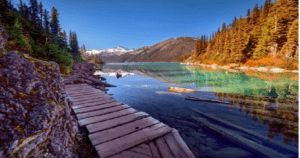
Nature lovers will find heaven at Jigme Dorji National Park, the biggest protected region in Bhutan. Among the park’s many ecosystems are glacier lakes, deep woods, and alpine meadows.
Along with trekking routes like the Snowman Trek, visitors can have cultural interactions with yak herders who live on the move. Packages for eco-tours and sustainable camping encourage ethical travel.
2.4 Haa Valley: A Sustainable Travel Hidden Gem
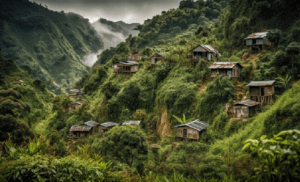
Tucked away between the Paro and Chhukha districts, Haa Valley provides a tranquil haven with expansive Himalayan vistas. Acclaimed for its historic buildings, breathtaking walks, and colorful celebrations like the Haa Summer Festival, the valley encourages eco-lodges, organic agricultural experiences, and community-based tourist projects.
2.5 Bumthang: Eco-Friendly Choices in the Cultural Heartland
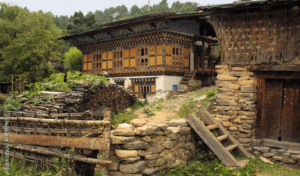
Known as Bhutan’s cultural core, Bumthang Valley combines historic monasteries, holy places, and traditional communities. Tourists can take part in eco-friendly activities including farm stays, handicraft workshops, and guided cultural excursions, in addition to exploring historical sites like the Jakar Dzong and going to festivals like Jambay Lhakhang Drup.
2.6 Trongsa is the entry point to Bhutan’s wildlife reserves.
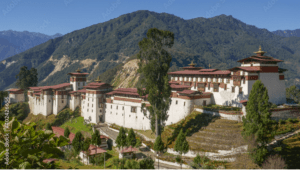
As the royal family’s ancestral residence, Trongsa is historically significant and strategically located, and it acts as a gateway to wildlife refuges like the Royal Manas National Park.
Visitors to Trongsa Dzong can take part in conservation programs, explore the abundantly wildlife-filled neighboring woodlands. Eco-lodges and sustainable tourism projects promote the conservation of wildlife and environmental education.
2.7 Trashigang: An Eastern Bhutan Trekker’s Paradise
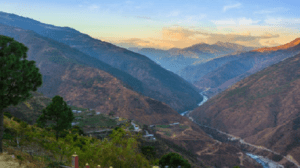
East of Bhutan, Trashigang provides challenging trekking routes amid untamed scenery and traditional Bhutanese communities. Hikers can take on the Druk Path Trek, see historic monasteries like Gom Kora, and take part in the colorful Tshechu celebrations.
Eco-friendly resorts, waste management programs, and cultural exchanges with local communities all help to promote sustainable tourist practices.
2.8 Paro Valley: Combining Ecotourism and History
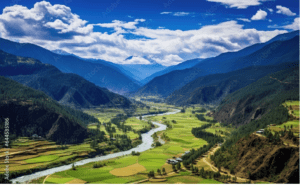
Home to Bhutan’s sole international airport and famous sites like the Tiger’s Nest Monastery (Taktsang), Paro Valley blends ecotourism projects with historical relevance.
Engage in community-based tourism initiatives, trek to Chele La Pass, and tour cultural sites. Paro’s eco-friendly appeal is further enhanced through efforts to reduce waste, save resources, and provide sustainable lodging.
2.9 The Sustainable Tourism Initiatives of the Capital City, Thimphu
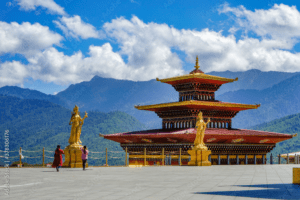
Bhutan’s capital city, Thimphu, combines modernism with traditional Bhutanese culture. Known locations for tourists include the Buddha Dordenma statue, the National Memorial Chorten, and Tashichho Dzong.
Sustainable tourism projects in Thimphu include environmentally friendly modes of transportation, waste disposal initiatives, and cultural events that encourage environmental awareness and conservation.
Along with providing distinctive experiences, each of these locations encourages ecotourism and environmental care in addition to sustainable travel methods and cultural immersion.
3.1 Gross National Happiness (GNH) and Sustainable Tourism
4.1 Harmonizing Economic Growth with Environmental Protection
Finding a good balance between the preservation of Bhutan’s pristine environment and the revenue generated from tourism is the difficulty. To guarantee that financial gains do not come at the expense of environmental deterioration, sustainable practices and policies must be put in place.
4.2 In remote ecotourism destinations, there is minimal infrastructure.
It can be difficult to attract visitors while guaranteeing their comfort and safety in remote ecotourism locations since they frequently lack sufficient infrastructure like roads, lodging, and services. Promoting ecotourism requires these locations to have sustainable infrastructure developed.
4.3 Preserving Cultural Integrity in the Face of Tourism Influence
Sometimes the flood of visitors results in commercialization or dilution of culture. The delicate balance that needs careful planning and management is maintaining Bhutan’s distinctive cultural legacy and customs while meeting the interests and experiences of visitors.
4.4 Threats from Climate Change to Bhutan’s Ecosystems
Bhutan’s ecosystems are susceptible to the effects of climate change, including loss of biodiversity, unpredictable weather patterns, and glacial melting. Promoting sustainable ecotourism will require major hurdles in reducing these hazards and adapting to changing environmental conditions.
4.5 Encouragement of Responsible Tourist Conduct
Reducing the detrimental effects of tourism on Bhutan’s environment and culture requires educating visitors about responsible behavior, such as minimizing waste, honoring local customs, and supporting sustainable projects.
4.6. Ensuring Just Sharing of Tourist Benefits
Fostering good relationships and ensuring the long-term viability of ecotourism in Bhutan depend on the fair sharing of tourism benefits—including economic prospects, social development, and cultural preservation—among local communities.
To solve these problems, everyone in Bhutan—government agencies, communities, tour operators, and visitors—must promote responsible and sustainable ecotourism practices together.
5. How does ecotourism contribute to Bhutan’s economy and conservation efforts?
5.1 The Economic Impact of Sustainable Tourism on Local Communities
Through jobs in hospitality, sales of crafts, and cultural experiences, sustainable tourism practices strengthen local people and eventually drive their socioeconomic growth.
5.3 Funding Biodiversity Protection and Conservation Projects
Conservation initiatives, biodiversity preservation, and habitat restoration are frequently the beneficiaries of ecotourism income. Through their preservation of Bhutan’s distinctive flora and wildlife, these initiatives support long-term environmental sustainability.
5.4 Jobs in the tourism and travel industry
For nationals of Bhutan, the tourism industry offers jobs as guides, hotel employees, artisans, and environmentalists. Along with strengthening the economy, this encourages pride and ownership in protecting Bhutan’s natural and cultural legacy.
5.5 Promotion of Environmental Awareness and Education
Travelers, residents, and other stakeholders are all greatly benefited by ecotourism in terms of environmental education and awareness. Ecotourism promotes responsible conduct and a greater love of the natural world by highlighting Bhutan’s conservation initiatives and environmentally friendly practices.
5.6 Reduced Negative Environmental Impacts
Sustainable tourism policies help mitigate tourism-related negative environmental effects. These policies encompass energy-efficient lodging, waste disposal initiatives, and wildlife protection programs.
This proactive strategy guarantees that ecotourism has as minimal of an effect on Bhutan’s ecosystems as possible.
All things considered, ecotourism is very important to Bhutan’s economy as well as to environmental preservation, sustainable development, and conservation initiatives.
6. What are some ecotourism activities available in Bhutan?
6.1 Birding and Wildlife Watching Tours

Rare species like the snow leopard, black-necked crane, and Bengal tiger are among the outstanding possibilities for watching wildlife in Bhutan. Birdwatching trips let enthusiasts see a wide variety of bird species in Bhutan’s mountains, wetlands, and forests.
6.2 Rural Village Cultural Immersion Programs
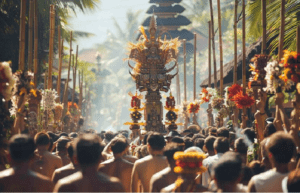
Rural village culture immersion programs provide visitors with actual exposure to homestays, traditional meals, and cultural performances. By supporting regional communities, tourists can learn about Bhutanese traditions, crafts, and everyday life.
6.3 National Park Trekking and Hiking Adventures
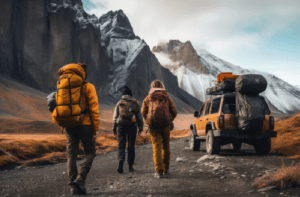
Trekking and hiking in Bhutan’s national parks include the well-known Jomolhari Trek and Snowman Trek. Travelers will encounter a variety of environments on these trips, such as woods, high mountain passes, and alpine meadows.
6.4 Stays on Farms and Agricultural Experiences
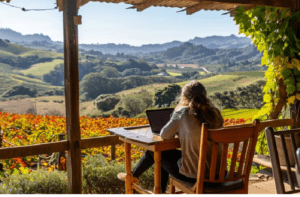
Tourists staying on farms may see rural life up close, take part in farming chores like milking and harvesting, and discover environmentally friendly farming methods. These interactions encourage respect of traditional ways of life and cross-cultural communication.
6.5 River Rafting and Kayaking in Bhutan
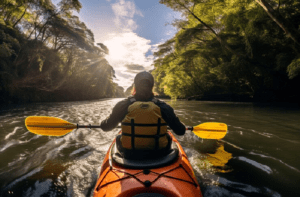
Exhilarating experiences amidst breathtaking natural surroundings can be experienced while rafting and kayaking on Bhutan’s immaculate rivers, like the Mo Chhu and Pho Chhu. These water-based pursuits emphasize Bhutan’s river ecosystems while encouraging outdoor leisure.
6.6 Retreats for Meditation and Wellness in Natural Environment

In Bhutan’s natural settings—monasteries, forests, and mountain retreats—meditation and wellness retreats offer chances for rest, renewal, and spiritual introspection. These retreats stress nature connection, whole wellness, and mindfulness.
With immersive experiences that benefit the environment and nearby communities, these ecotourism activities highlight Bhutan’s unique biodiversity, cultural legacy, and dedication to sustainable tourism practices.
7. How does Bhutan ensure the safety and comfort of ecotourists?
7.1 Well-Controlled Tour Operators and Guides
Bhutan controls tour companies and guides to make sure they adhere to high requirements for professionalism, safety, and environmental responsibility. Guides with licenses guarantee that tourists follow regulations and offer professional knowledge and logistical assistance.
7.2 Tourist Area Emergency Response Systems
Emergency response systems, including medical facilities, communication networks, and qualified staff, are available in tourist areas of Bhutan. This guarantees fast help in case of mishaps, natural calamities, or medical emergencies.
7.3 Standard of Health and Hygiene in Accommodations
Ecotourists can stay in comfortable and safe surroundings in Bhutan because lodgings follow health and hygiene regulations. Basic facilities and cleanliness are kept up-to-date to provide a comfortable stay.
7.4 Dietary Choices and Sustainable Food Practices
Bhutan encourages ecotourists with particular preferences or limitations to have dietary alternatives, acquire locally grown products, and reduce food waste. This guarantees tourists wholesome, environmentally friendly meals.
7.5 Cultural Sensitivity Training for Traveler Interactions
Operators and tourist guides get training in cultural awareness to enable respectful contacts with the local population. This entails knowing customs, traditions, and manners to guarantee ecotourists have fulfilling and enjoyable interactions.
Bhutan prioritizes ecotourists’ safety, comfort, and well-being by putting these policies into place, which improves their entire experience and promotes ethical and sustainable tourism activities.
8. What are the cultural and environmental impacts of ecotourism in Bhutan?
8.1. Traditional Practice Preservation and Rejuvenation
Bhutanese ecotourism supports the preservation and revival of traditional arts, crafts, music, dance, and ceremonies. Ecotourists are shown and celebrated this cultural legacy, which inspires a fresh respect and maintenance of these customs.
8.2 Promoting Regional Festivals, Arts, and Crafts
Ecotourism gives artists, artisans, and performers a stage on which to display their skills, therefore promoting regional arts, crafts, and festivals. Visitors frequently support regional artists, attend cultural events, and buy handicrafts, which boosts the cultural economy.
8.3 Reduced Carbon Footprint using Sustainable Methods
Ecotourism promotes environmentally responsible transportation choices, energy conservation, and waste reduction, among other sustainable activities. These initiatives help mitigate the carbon footprint of tourist activities, therefore promoting environmental preservation and lessening the effects of climate change.
8.4 Conservation of Habitats and Endangered Species
Bhutanese ecotourism projects concentrate on conservation measures to save endangered species and their natural surroundings. Funding from tourist earnings goes to wildlife sanctuaries, protected areas, and conservation initiatives, which in turn preserves habitats and biodiversity.
8.5 Positive Impact on Environmental Practices and Policies
Bhutanese ecotourism has been successful, which has had a positive impact on national and local environmental laws. It pushes citizens, companies, and government organizations to embrace environmentally friendly activities, conservation programs, and ethical travel regulations.
The cultural and environmental effects of ecotourism in Bhutan highlight the interconnection between tourism, culture, and conservation. This benefits both the local people and the ecosystem as a whole.
9.1 Honoring Bhutanese Traditions and Etiquette
Respecting Bhutanese traditions, etiquette, and customs will help ecotourism succeed. To preserve cultural integrity, one should dress modestly, ask permission before taking pictures, and show respect at sacred sites.
9.2 Supporting Regional Companies and Craftspeople
Buying handicrafts, mementos, and goods created by Bhutanese craftspeople is one way that visitors may boost the local economy. Visiting neighborhood cooperatives, stores, and marketplaces helps to maintain traditional ways of life and encourages cross-cultural interaction.
9.3 Taking Part in Environmentally Friendly Events and Tours
By choosing environmentally friendly tours and activities, such nature walks, wildlife watching excursions, and cultural encounters with local guides, one can reduce their environmental impact and promote sustainable tourism methods.
Reducing Waste and Plastic Use Travelers can help ecotourism succeed by using as little waste and plastic as possible while on the road. Reusable water bottles, bags, and containers, along with appropriate waste disposal lower pollution to the environment and advance sustainability.
9.4 Finding Out About Bhutan’s Conservation Initiatives
Participating in educational events, guided tours, and conservation programs enables visitors to gain knowledge about the sustainable development projects, wildlife protection measures, and conservation efforts of Bhutan. This knowledge encourages tourists to have a deeper respect for ecotourism and to engage in responsible behavior.
Involving themselves actively in these activities, visitors are essential to the development of ecotourism in Bhutan, helping to preserve the environment, preserve cultural heritage, and empower communities.
10. What are the future prospects and innovations in Bhutan’s ecotourism sector?
10.1 Green Technology Integration in Tourism Infrastructure
Bhutan may improve ecotourism by incorporating into its tourism infrastructure green technologies like solar panels, energy-efficient lighting, and water conservation systems. In addition to reducing environmental effect, this encourages sustainable practices.
10.2. Community-Based Ecotourism Initiatives Extension
Growing community-based ecotourism projects gives local people more authority, generates business opportunities, and promotes cross-cultural interaction. Residents and visitors alike benefit from working with communities to create distinctive experiences.
10.3 Working Together with International Conservation Organisations
Working together, Bhutan improves its conservation efforts, gains access to resources and knowledge, and fortifies alliances for the preservation of biodiversity and environmentally friendly tourism.
10.4 Programs for Youth Education on Sustainable Tourism
Encouraging environmental stewardship, developing a sense of responsibility, and preparing future leaders to support ecotourism and conservation initiatives are all benefits of putting educational programs on sustainable tourism for adolescents into place.
10.5. Expanding Ecotourism Offers Outside of Nature
Extending ecotourism services outside of the natural world to include cultural encounters, heritage tours, and gastronomic adventures draws in a larger clientele while advancing overall sustainability and protecting Bhutan’s cultural legacy.
Through the application of these tactics, Bhutan may improve its ecotourism programs even more, encourage environmental protection, and provide tourists with a more fulfilling and long-lasting travel experience.
11. How can Bhutan maintain the balance between tourism growth and environmental protection?
11.1 Continued Ecological Footprint Monitoring:
Bhutan ought to keep an eye on ecological imprints in order to evaluate how tourism affects the ecosystem. Frequent inspection guarantees ecotourism activities stay sustainable and ecologically friendly while also pointing up areas that need work.
11.2 Planning Strategically for Infrastructure Development
Supporting increasing tourist demand while reducing environmental effect requires strategic planning for infrastructure development. Environmentally friendly solutions, like energy-efficient waste management systems, sustainable construction, and renewable energy, should be given top priority in infrastructure designs.
11.3 Marketing of Low-Impact and Off-Season Travel
Encouraging low-impact and off-season travel spreads tourists, eases environmental stress during busy times of year, and promotes year-round sustainable travel. Travelers might be encouraged to see Bhutan during slower times of year via specialized tours and incentives.
11.4 Including Climate Change Adaptation Plans
Bhutan should include climate change adaptation plans in ecotourism planning to address environmental issues such as biodiversity destruction, extreme weather, and glacial melt. These adaptation strategies ensure resilience and sustainability in the face of climate effects.
11.5 Stakeholder Involvement in Ecological Tourism Policies
Collaborative, open, and shared responsibility are promoted when local communities, companies, NGOs, and government organizations are involved in creating and executing sustainable tourism policy. Ethical and more successful ecotourism practices result from inclusive decision-making.
Bhutan can maintain and advance its ecotourism activities by putting these plans into action, ensuring long-term environmental protection, cultural preservation, and monetary benefits for all parties involved.
12. Summary of the information presented in this article
| TOPIC | SUMMARY |
| Top Ecotourism Destinations in Bhutan | Highlights popular destinations like Punakha Valley, Phobjikha Valley, and Paro Valley, each offering unique eco-friendly experiences. |
| Promoting Sustainable Tourism in Bhutan | Discusses Bhutan’s Gross National Happiness (GNH) approach, HVLI Tourism Policy, and efforts preserve culture and environment. |
| Challenges in Ecotourism Promotion | Addresses issues such as infrastructure limitations, climate change threats, and the need for responsible tourist behavior. |
| Economic and Conservation Contributions | Explores how ecotourism contributes to Bhutan’s economy through revenue generation, conservation funding, and employment opportunities. |
| Ecotourism Activities in Bhutan | It lists various activities, including wildlife watching, cultural immersion programs, and meditation retreats, showcasing Bhutan’s diverse offerings. |
| Safety and Comfort for Ecotourists | It focuses on safety measures, health standards, and cultural sensitivity to ensure a comfortable experience for visitors. |
| Cultural and Environmental Impacts | Discusses the positive impacts of ecotourism on cultural preservation, reduction of carbon footprint, and conservation efforts. |
| Tourists’ Role in Ecotourism Success | Highlights how tourists can contribute by respecting customs, supporting local businesses, and engaging in eco-friendly practices. |
| Future Prospects in Bhutan’s Ecotourism | Looks at upcoming innovations like green technologies |
13. Conclusion:
Finally, Bhutan is a brilliant illustration of ecotourism done well while integrating sustainable methods, cultural preservation, and environmental protection.
The nation’s dedication to Gross National Happiness (GNH) is a reflection of its comprehensive tourism policy, which gives the welfare of its people, environment, and legacy first priority.
Through calculated programs such as eco-friendly infrastructure development, wildlife conservation, and community-based tourism, Bhutan has managed to strike a harmonic balance between tourism and environmental protection in 2024.
Bhutan offers visitors stunning natural scenery along with the encouragement to choose eco-friendly travel methods that reduce their environmental impact.
The future of ecotourism in Bhutan is bright as long as the nation keeps up its embrace of climate change adaptation plans, supports regional companies, and informs both visitors and residents about the value of sustainable living.
Bhutan’s ecotourism strategy inspires sustainable tourism all throughout the world by promoting a close relationship between people, environment, and culture in 2024.

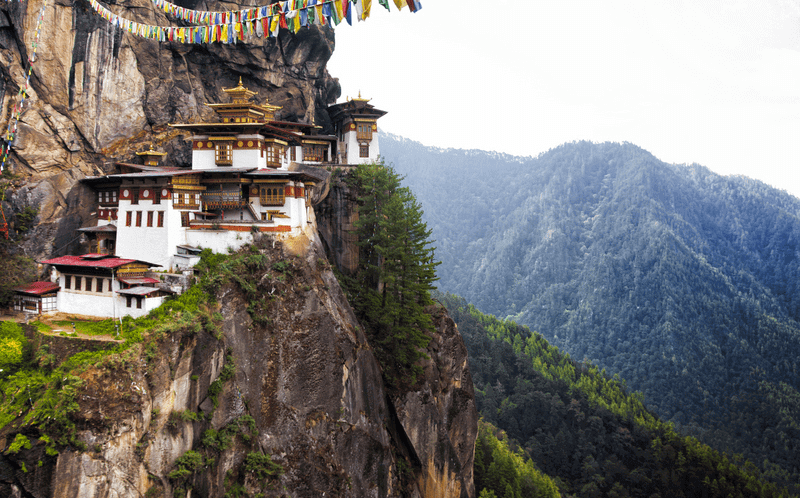
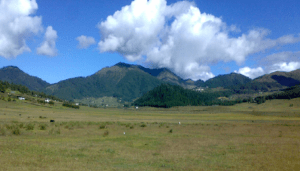
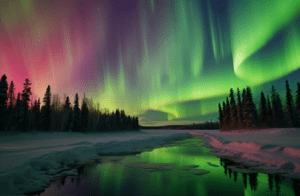

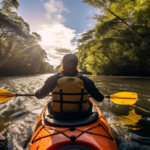


Hi there, just became aware of your blog through Google, and found that it is truly informative.
I am gonna watch out for brussels. I’ll be grateful if you continue this in future.
Numerous people will be benefited from your writing.
Cheers! Escape room